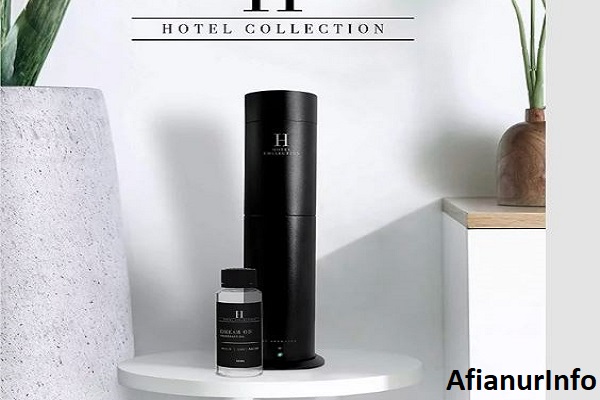What Does Shared Bathroom in Hotel Mean? A shared bathroom in a hotel means that guests have to use the same bathroom with others. Shared bathroom in hotels means guests have to share the same bathroom facility with other guests.
This can either be a hallway or communal bathroom, or a private bathroom shared between a small number of adjoining rooms. Shared bathroom. Shared bathrooms are more commonly found in budget or hostel-type accommodations, where the focus is on providing affordable lodging options.
While shared bathrooms may lack the privacy and convenience of having a bathroom exclusive to your room, they are often maintained to high standards of cleanliness by hotel staff. Some travelers prefer shared bathrooms due to the cost savings, while others may find it to be a drawback or inconvenience during their stay.
Understanding Shared Bathrooms In Hotels
Shared bathrooms in hotels refer to communal restroom facilities that are used by multiple guests. These bathrooms, typically located in common areas, are shared by different individuals staying in the hotel. Sharing bathrooms can be a cost-effective option for those looking to save money on their accommodations.
Shared bathrooms in hotels are a unique feature that some accommodations offer to their guests. Rather than having a private bathroom attached to each room, these hotels provide communal bathrooms that are shared among multiple guests. Understanding why hotels offer shared bathrooms and the benefits they provide can help you make an informed decision when choosing your accommodation.
What Are Shared Bathrooms In Hotels?
Shared bathrooms are facilities within a hotel that are accessible to multiple guests. Instead of having a private bathroom within each room, these bathrooms are shared by guests staying in different rooms or even on the same floor. Shared bathrooms usually contain toilets, sinks, and showers, and their cleanliness and maintenance are ensured by the hotel staff.
In shared bathrooms, guests take turns using the facilities, respecting each other’s privacy and time. While the concept of sharing bathrooms may sound unconventional, it can be a cost-effective option for both hotels and guests. You have to know also the attached bathroom system in a hotel.
Benefits of shared bathrooms in hotels:
- Cost savings: Shared bathrooms are often found in budget accommodations or boutique hotels as they reduce construction and maintenance costs. This cost-saving measure can result in more affordable room rates for guests.
- Space optimization: By eliminating private bathrooms in each room, hotels can maximize the usable space within their property. This allows for the creation of additional rooms or common areas for guests to enjoy.
- Social interactions: Shared bathrooms provide an opportunity for guests to interact and meet fellow travelers from different backgrounds. This communal setting can foster a sense of camaraderie and create a more vibrant atmosphere within the hotel.
- Environmental sustainability: Shared bathrooms contribute to reduced water consumption and energy usage, which aligns with hotels’ efforts to be more environmentally conscious. By encouraging shared facilities, hotels can promote sustainability and responsible tourism.
- Historical charm: In some cases, hotels with shared bathrooms may be housed in historic buildings that have retained their original architectural layout. Hotels can showcase the historical significance and charm of their properties.
Shared bathrooms in hotels offer a unique experience that can be both cost-effective and socially engaging. Understanding the reasons behind hotels offering shared bathrooms and the benefits they bring can help you decide if it is the right accommodation choice for your next trip.
Pros And Cons Of Shared Bathrooms In Hotels
A shared bathroom in a hotel refers to a restroom that is shared among multiple guests. The pros include affordability and potentially socializing with other travelers, while the cons involve privacy and cleanliness issues. Choose the best hotel option that aligns with your preferences.
What can you expect when staying in a hotel with shared bathrooms? Let’s explore the advantages and disadvantages of this common feature in the hospitality industry.
Advantages Of Staying In Hotels With Shared Bathrooms:
- Cost-effective option: Shared bathrooms often come with a lower price tag compared to rooms with en-suite facilities. This makes them a great choice for budget-conscious travelers who don’t mind sharing facilities.
- Enhanced socialization: Shared bathrooms encourage interaction among guests. It’s a chance to meet new people, share travel tips, and forge connections. If you enjoy a social atmosphere, this can be a significant advantage.
- Accessible locations and unique accommodations: Many hotels with shared bathrooms are located in historic buildings, unconventional spaces, or boutique establishments that provide a unique experience. By choosing to stay in such accommodations, you can enjoy the charm and character of these establishments.
- Maintenance and cleanliness: Shared bathrooms are often maintained by hotel staff, ensuring that the facilities are clean and well-maintained throughout your stay. Since staff members are responsible for cleanliness, you don’t need to worry about upkeep.
Disadvantages Of Staying In Hotels With Shared Bathrooms:
- Limited privacy: The most apparent drawback of shared bathrooms is the lack of privacy. You may find it inconvenient or uncomfortable to share bathroom facilities with strangers or fellow guests, especially during peak hours.
- Inconvenience during peak periods: Shared bathrooms can get crowded during peak periods, such as morning rush hours or after busy event schedules. This may lead to longer wait times for showers, sinks, or toilets.
- Lack of essential amenities: Shared bathrooms often lack certain amenities that you would typically find in en-suite facilities. Things like toiletries, hair dryers, or countertop space may not be readily available or may need to be shared among guests.
- Personal belongings and security: Since you’ll be sharing the bathroom with other guests, there’s a higher chance of misplacing or accidentally moving your personal belongings. Additionally, some may have concerns about the security of their belongings if left unattended in shared spaces.
By considering these pros and cons, you can make an informed decision about whether staying in a hotel with shared bathrooms aligns with your preferences and travel style. Whether you value cost savings and a sociable atmosphere or prefer the convenience and privacy of en-suite facilities, the choice is ultimately yours.
Common Features Of Shared Bathrooms In Hotels
Shared bathrooms in hotels are spaces that are used by multiple guests. They are equipped with common features like sinks, toilets, and showers. These bathrooms provide convenience and cost savings for travelers on a budget.
Shared bathroom layouts and designs in hotels can vary greatly, but there are some common features you can expect to find. Whether you’re staying in a budget hotel or a luxury establishment, shared bathrooms are designed to provide convenience and functionality for guests.
In this section, we will explore the typical layout and design of shared bathrooms, the amenities they provide, and the hygiene and cleanliness standards you can expect.
Shared Bathroom Layout And Design
- Partitioned areas: Shared bathrooms are often divided into separate areas to allow multiple guests to use the facilities simultaneously. This can include partitioned shower stalls, toilet cubicles, and sink stations.
- Minimalist design: Many hotels opt for a clean and minimalist design in shared bathrooms to create a modern and uncluttered space. This can include sleek fixtures, neutral colors, and simple geometric shapes.
- Ample space: To ensure comfort and ease of use, shared bathrooms are usually designed with ample space for guests to move around freely. This can include wide corridors, spacious shower areas, and generously sized sinks.
- Well-lit environment: Good lighting is essential in shared bathrooms to create a bright and welcoming atmosphere. Hotels typically install overhead lights, mirrors with built-in lighting, and task lighting near the sinks and showers.
- Thoughtful layout: Shared bathrooms are designed with a focus on functionality and efficiency. You can expect to find logical layouts that separate different areas, such as showers and toilets, and provide easy access to essential amenities.
- Privacy measures: While shared bathrooms are communal spaces, hotel designers strive to ensure guest privacy. This can include features like lockable shower cubicles and toilet doors, soundproofing, and strategically placed dividers.
Amenities Provided In Shared Bathrooms
- Toiletries: Most hotels provide complimentary toiletries in shared bathrooms, including items such as soap, shampoo, conditioner, and body lotion. These are typically replenished daily or upon request.
- Towels: Fresh towels are usually available for guests to use in shared bathrooms. These can be found either on towel racks or in designated areas.
- Hand dryers or paper towels: To promote hygiene and convenience, shared bathrooms often provide hand-drying options such as electric hand dryers or paper towels.
- Hooks and racks: To keep belongings organized and easily accessible, hotels may provide hooks and racks in shared bathrooms. These can be used to hang towels, clothing, or toiletry bags.
- Mirrors: Well-placed mirrors are a common feature in shared bathrooms, allowing guests to groom and get ready with ease. These mirrors are often well-lit to provide optimal visibility.
Hygiene And Cleanliness Standards
- Regular cleaning: Hotels prioritize the cleanliness of shared bathrooms by implementing regular cleaning schedules. This includes disinfecting surfaces, replenishing toiletries, and restocking towels.
- Attention to detail: Hotel housekeeping staff pay close attention to detail when cleaning shared bathrooms, ensuring that all areas are thoroughly cleaned, including floors, sinks, showers, and toilets.
- Sanitary measures: Hotels may provide additional hygienic measures in shared bathrooms, such as hand sanitizers or conveniently placed trash bins for used towels or toiletries.
- Quality control: Hotels often have quality control processes in place to ensure that shared bathrooms meet the highest standards of cleanliness. These can include regular inspections and feedback from guests to address any concerns promptly.
Shared bathrooms in hotels are designed with guest convenience, functionality, and hygiene in mind. They feature well-thought-out layouts and designs, provide essential amenities, and adhere to high cleanliness standards. By understanding these common features, you can have a better idea of what to expect when booking accommodation with shared bathrooms.
Tips For Using Shared Bathrooms In Hotels
Shared bathrooms in hotels refer to bathrooms that are shared by multiple guests. It is important to follow certain tips, such as keeping your belongings organized and respecting others’ privacy, when using these types of facilities. These guidelines can help ensure a pleasant experience for everyone.
Shared bathrooms in hotels can be a bit of an adventure, but fear not—I’ve got some unique tips to help you navigate this communal territory:
- Respect Privacy and Space:
- When using shared bathroom facilities, be mindful of others. If someone is in the shower stall, give them space and wait your turn.
- Make sure to be efficient with your shower time, especially when stalls are limited.
- Set a Bathroom Schedule:
- Establish a routine for bathroom use. Knowing when you’ll have your turn can reduce stress.
- Coordinate with your travel companions to avoid bathroom traffic jams.
- Invest in a Shower Caddy:
- A portable shower caddy keeps your toiletries organized and makes it easy to carry them to and from the bathroom.
- For convenience, hang it on a hook or place it on a shelf.
- Maximize Your Time:
- Plan your bathroom activities efficiently. Combining tasks like brushing your teeth and washing your face can save time.
- Be considerate of others waiting to use the facilities.
- Use the Drawers and Hooks:
- If your room has drawers or hooks, utilize them for storing personal items.
- Hang towels or clothes on hooks to keep them off the floor.
- Clean Up After Yourself:
- Leave the bathroom as tidy as you found it. Wipe down surfaces and dispose of trash properly.
Shared bathrooms in hotels are a common feature in budget-friendly accommodations or hostels. While the idea of sharing a bathroom may be daunting for some, with a little bit of etiquette and some helpful strategies, you can navigate shared bathrooms with ease and maintain personal hygiene.
Here are some tips to make your experience in a shared hotel bathroom more pleasant:
Etiquette And Etiquette Tips For Shared Bathrooms:
- Be mindful of other guests: Remember that you are sharing the bathroom with fellow travelers. Respect their privacy and space by keeping your noise level down and being considerate of their needs.
- Keep it clean: Leave the bathroom as you would like to find it. Clean up after yourself by wiping down the sink area, disposing of any trash properly, and not leaving personal belongings scattered around. You have to know also how to clean a hotel room firstly.
- Use bathroom amenities responsibly: Shared bathrooms often provide toiletries such as soap and toilet paper. Use these amenities sparingly and don’t take more than you need. Remember that others need access to these supplies as well.
- Avoid lengthy showers: Showers are often in high demand in shared bathrooms. Be mindful of others waiting by keeping your showers brief and efficient. It’s also important to stick to the posted time limits if applicable.
Strategies For Managing Wait Times And Occupancy:
- Plan ahead: If you know there tend to be peak times for bathroom use, plan your bathroom breaks accordingly. Try to use the facilities during off-peak hours to minimize wait times.
- Communicate with your fellow guests: If there is a line forming outside the bathroom, it can be helpful to ask others how many people are waiting or if they just need to use the sink. This way, everyone can prioritize their needs and make the process smoother.
- Make use of alternative facilities: In some cases, there may be alternative bathrooms or facilities available nearby, such as on a different floor or in a common area. If you notice a long line forming, it may be worth exploring these options to save time.
Ways To Maintain Personal Hygiene And Cleanliness:
- Carry personal essentials: To ensure personal hygiene, pack a small toiletry kit with items such as hand sanitizer, wet wipes, and tissues. These can come in handy when the shared bathroom may not have all the necessary supplies or for additional cleanliness measures.
- Practice good hand hygiene: Wash your hands thoroughly with soap and water before and after using the bathroom. This simple step can help prevent the spread of germs and keep you healthy during your stay.
- Bring a shower caddy: If you have a lot of personal toiletries, consider using a shower caddy to keep your items organized and prevent them from cluttering the shared bathroom space.
Remember, an open-minded and considerate approach is key when using shared bathrooms in hotels. By following these tips and guidelines, you can have a pleasant experience and ensure a harmonious environment for all guests.
Alternatives To Shared Bathrooms In Hotels
Shared bathrooms in hotels refer to bathrooms that are used by multiple guests or shared by multiple rooms. For those who prefer more privacy, there are alternative options available, such as en-suite bathrooms or private bathrooms in individual rooms, providing a more exclusive and comfortable stay.
When it comes to hotel accommodations, shared bathrooms may not be ideal for everyone. Luckily, there are alternative options available that provide more privacy and comfort. Whether you prefer private bathrooms, upscale accommodations, or have specific needs as a traveler, there are various alternatives to consider.
Private Bathrooms In Hotels
- Many hotels offer rooms with private bathrooms, allowing guests to enjoy their own personal space without having to share facilities.
- Private bathrooms provide convenience and privacy, ensuring a comfortable stay for guests.
- Having a private bathroom means you don’t have to worry about queueing or sharing showering facilities with other guests.
- With a private bathroom, you can take your time and relax, knowing you have exclusive access to the facilities.
Upscale Accommodations Without Shared Bathrooms
- Upscale hotels and luxury resorts generally offer rooms with en-suite bathrooms.
- These high-end accommodations provide a luxurious experience, with elegant and spacious bathrooms.
- Upscale hotels often boast amenities such as Jacuzzi tubs, rainfall showers, and premium toiletries to enhance your stay.
- By choosing an upscale hotel, you can indulge in a comfortable and private bathroom experience.
Accommodation Options For Travelers With Specific Needs
- Some travelers have specific needs that require accommodations with particular bathroom facilities.
- Accessible hotels cater to individuals with mobility impairments and offer accessible bathrooms equipped with handrails, roll-in showers, and wider doorways.
- Family-friendly hotels often have rooms with larger bathrooms to accommodate parents with young children.
- Hotels with separate bathrooms for guests with allergies offer a hypoallergenic environment, minimizing the risk of exposure to potential allergens.
Remember, when selecting your preferred hotel, it’s essential to check the room amenities and confirm if a private bathroom is included. By considering these alternatives to shared bathrooms, you can ensure a comfortable and enjoyable stay that suits your specific requirements as a traveler.
Making An Informed Decision About Shared Bathrooms In Hotels
Shared bathrooms in hotels refer to restroom facilities that are not exclusive to individual guest rooms. Guests may have to share these bathrooms with other guests staying at the hotel. Understanding what shared bathrooms in hotels mean helps travelers make informed decisions about their accommodation choices.
When it comes to choosing a hotel, one important factor to consider is whether the accommodation offers shared bathrooms. While some travelers may not mind sharing facilities with other guests, for others, this can be a dealbreaker. Making an informed decision about choosing a hotel with shared bathrooms involves evaluating personal comfort levels and preferences, as well as reading reviews and doing thorough research.
This section will delve into these factors to help you make the right choice for your stay.
Factors To Consider When Choosing A Hotel With Shared Bathrooms:
- Budget: Shared bathrooms can often be found in budget-friendly accommodations, offering a more affordable option compared to hotels with private en-suite facilities. If you are looking to save money on your stay, shared bathrooms could be a viable choice.
- Privacy: Consider your comfort levels with sharing bathroom facilities. Shared bathrooms mean that you will be sharing the space with other guests, which can be a concern for those who value their privacy.
- Convenience: Shared bathrooms may require you to leave your room and walk down the hallway to access the facilities. Evaluate whether this is a convenience you are willing to forego for a potentially lower price.
- Hygiene: Assess the cleanliness and upkeep of the shared bathrooms in the hotel. While some accommodations take great care in maintaining their facilities, others may not meet your hygienic standards. Reading reviews can help gauge the cleanliness of shared bathrooms.
- Availability: Determine how many shared bathrooms are available in the hotel and how many guests they serve. If there are a limited number of shared bathrooms, this could lead to potential waits or inconveniences.
- Size of the hotel: Consider the number of guests the hotel can accommodate. Larger hotels with shared bathrooms may have a higher turnover of guests, which could mean a busier bathroom environment.
- Length of stay: Evaluate the duration of your stay. If you are planning a short stay, shared bathrooms might be more manageable. However, if you are staying for an extended period, having your own bathroom may be preferable.
Evaluating Personal Comfort Levels And Preferences:
- Evaluate how comfortable you are with sharing bathroom facilities. This can vary greatly among individuals. Some may have no reservations about using shared bathrooms, while others may prefer the convenience and privacy of their own bathroom.
- Consider whether you have any specific needs or requirements. For example, individuals with mobility issues may find it more challenging to navigate shared bathroom facilities.
Importance Of Reading Reviews And Doing Research:
- Take the time to read reviews from previous guests who have stayed in accommodations with shared bathrooms. Their experiences can provide valuable insights into the cleanliness, convenience, and overall satisfaction with the shared facilities.
- Conduct thorough research on the hotel’s website or other booking platforms. Look for information about the shared bathrooms, including photographs, descriptions, and any additional amenities or services provided.
Remember, making an informed decision about choosing a hotel with shared bathrooms involves considering factors like budget, privacy, convenience, hygiene, size of the hotel, length of stay, and personal comfort levels. You can ensure a more satisfying stay that aligns with your preferences and expectations.
Read also more related topics: Can you drink tap water in New York Hotel?
Can You Get Food Delivered to a Hotel in Vegas?
book a hotel room for someone else
Can You Go to Hotel Pools Without Staying There?
How to Order Room Service in a Hotel?
How to buy a hotel room permanently?
Can they tell if you vape in a hotel room?
Can I Watch Amazon Prime on Hotel TV?
How Old to Book a Hotel in Florida?
How Long Does a Hotel Deposit Refund Take?
How to Call Front Desk at Hotel?
Can You List a Hotel Room on Airbnb?
Frequently Asked Questions Of What Does Shared Bathroom In Hotel Mean
How Does Shared Bathroom Work?
Shared bathrooms work by being used by multiple individuals and are maintained for cleanliness and hygiene.
What Is A Shared Bathroom Called?
A shared bathroom is commonly referred to as a communal bathroom.
What Is The Disadvantage Of Shared Bathroom?
One disadvantage of a shared bathroom is the lack of privacy and cleanliness.
What Is The Difference Between Shared Bathroom And Ensuite Bathroom?
A shared bathroom is used by multiple people and is not attached to a specific room. An ensuite bathroom is private and attached to a specific room.
What Does A Shared Bathroom In A Hotel Mean?
A shared bathroom in a hotel refers to a bathroom that is shared by multiple guests, situated in a common area rather than being connected to a specific room.
How Does A Shared Bathroom Work In Hotels?
In hotels with shared bathrooms, guests would need to leave their rooms and use the communal bathroom facilities located elsewhere in the hotel, usually on the same floor or in a designated area.
How Many Guests Usually Share A Shared Bathroom In A Hotel?
The number of guests sharing a shared bathroom in a hotel can vary depending on the hotel’s size and the number of rooms available. It could range from as few as two to several guests sharing the same bathroom.
Conclusion
Shared bathrooms in hotels offer both advantages and challenges for travelers. On one hand, they provide a budget-friendly option for those looking to save money on accommodations. Additionally, shared bathrooms can foster a sense of community and camaraderie among guests.
However, it’s important to consider the potential drawbacks. Shared bathrooms may lack privacy and can be inconvenient during peak usage times. Guests should be prepared for the possibility of waiting for a vacant bathroom or a less-than-ideal level of cleanliness.
When choosing a hotel with shared bathrooms, it’s essential to read reviews and consider the unique needs of your trip. Overall, shared bathrooms can be a viable option for travelers seeking an affordable and social lodging experience. By understanding the pros and cons, you can make an informed decision that best suits your preferences and budget.




